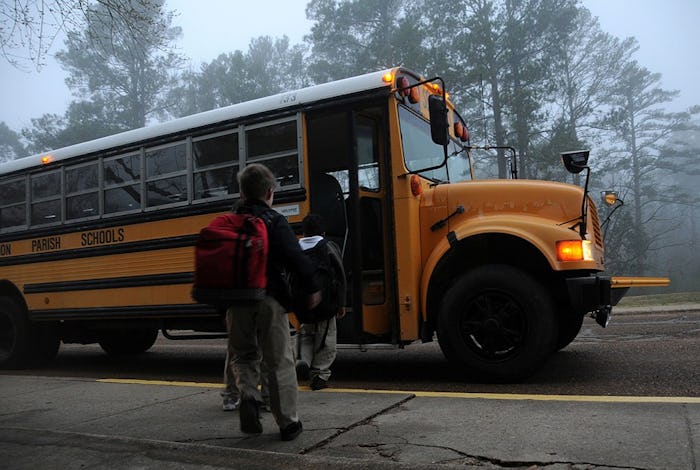News
8-Year-Old Boy’s Suicide Proves Why Parents Need To Talk About Bullying
No matter how harmless some may think calling someone “fat” or “stupid” is, bullying at any level is a huge issue and it needs to stop. But, what makes combating this problem even more difficult is that more often than not, kids who are bullied are intimidated into silence and parents (or teachers) never know the full extent of what is happening. Which is reportedly what happened with Gabriel Taye, the 8-year-old boy who committed suicide days after he was violently bullied in a school bathroom, unsettling surveillance video shows.
Months after Gabriel was found dead after he hanged himself with a necktie in his Cincinnati home in January, law enforcement reviewed security footage from the days leading up to the boy’s death, CNN reported. Within the 24-minute video, detectives told school administrators though an email that they noticed bullying behavior that "could even rise to the level of criminal assault," according to CNN.
The disturbing footage shows the third-grader walking into a school bathroom and approaches a larger boy, who had just pushed another boy. Gabriel then appears to extend his hand to shake the larger boy’s hand when he’s then tugged and pushed into a wall. Gabriel then falls to floor and several boys walk past and stand over him for almost five minutes until a teacher arrives. The school reportedly did not tell his mom, Cornelia Reynolds, of this incident and instead only told her that Gabriel had fainted and was treated by the school nurse, according to CBS News. Two days, he committed suicide.
Had Reynolds known Gabriel was violently bullied at school, she could have stepped in as a parent in multiple ways. She could have spoken to him about it and advised him on how he could best handle it. She could have taken him out of the school and placed Gabriel in a new school where he felt more comfortable. She could have contacted the parents of the aggressor in the video so they could deal with the issue at home as well.
But, Reynolds reportedly didn't know what was happening to her son at school and couldn't intervene. And that's exactly why parents need to talk to their kids about bullying before it ever becomes a problem. Ask them questions, like "What does 'bullying' mean to you?" or "What do you do when you see someone get bullied?"
"The best way to address bullying is to stop it before it starts," according to StopBullying.gov. "Talk about what bullying is and how to stand up to it safely. Tell kids bullying is unacceptable. Make sure kids know how to get help."
Other than making communicating openly and honestly with your child about effects of bullying, parents should also know how to look for signs that their child is being bullied, like unexplainable injuries or strange sleep patterns.
Even if your kid isn't bullied (or a bully), making them aware of what it is so they can tell an adult could help another child who is. And without making kids aware and open discussing it, bullying won't just stop.
